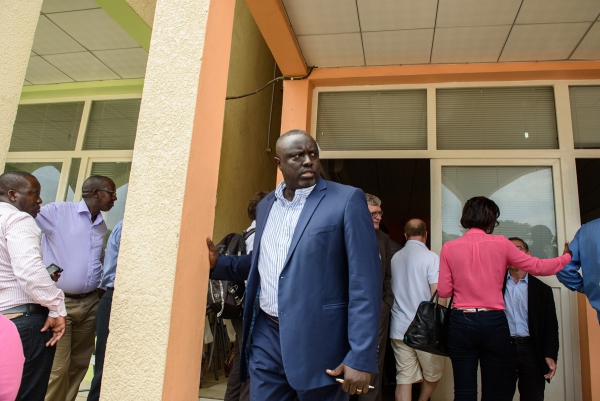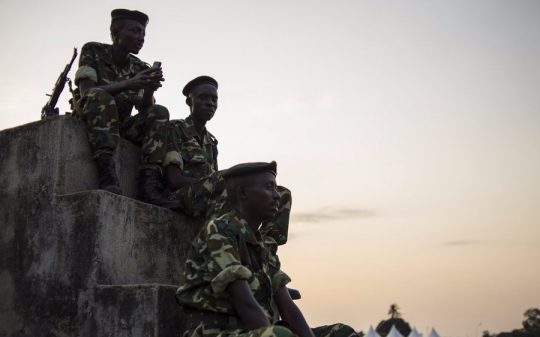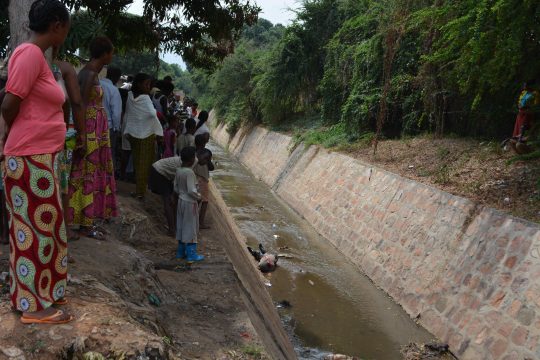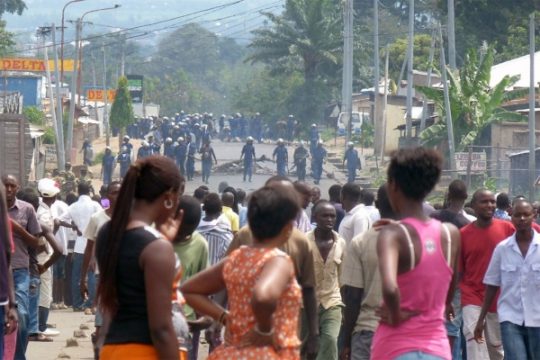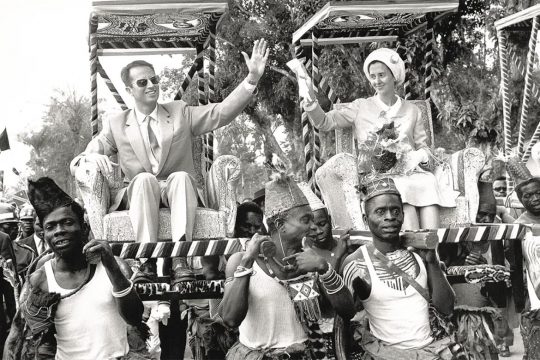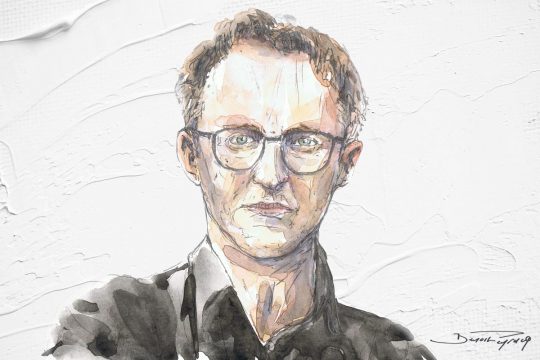With the leading privately-owned news radio stations still closed since 14 May, the government has now turned its sights on Iwacu, a privately-owned weekly that is regarded as moderate and professional and is the only independent newspaper to have kept publishing throughout the turmoil,” warned Reporters without Borders (RSF) back on September 11. A week earlier, Burundian President Pierre Nkurunziza’s chief spokesman Willy Nyamitwe called journalists of Iwacu “tricksters” and “crooks” after they published an article he did not like.
The media group obviously did not take Nyamwite’s words lightly. The government “is trying to prepare public opinion to justify future action,” said Iwacu director Antoine Kaburahe.
Kaburahe, a journalist known in Burundi for his independence and professionalism, had not yet forgotten Nyamitwe’s words when he got a summons last Friday to the Attorney General’s office in “case RMPG No697 /MA, relating to the failed coup of May 13” against President Nkurunziza, who was on a visit to the Tanzanian capital Dar Es Salaam at the time.
Ignoring advice from some of his friends, Kaburahe answered the summons on Monday, accompanied by two lawyers. He emerged from questioning towards the end of the morning. “I will always make myself available if the judicial authorities need me,” he told numerous colleagues who were waiting for him. One of his lawyers, Lambert Nsabimana, said the questioning had gone well but investigations into the case were continuing.
Before entering that office, Kaburahe had time to exchange with several Western diplomats who had come to support him, according to the paper’s website (www.iwacu-burundi.org).
In an interview published on the Iwacu website a few minutes before his appointment, the group’s director appeared calm, expressed once again his attachment to his profession and defended the professionalism of his team. “The Iwacu media group that I have led for eight years has always acted within the rule of law, respecting the laws and authorities of this country,” he said. “The conduct of Iwacu has never been questioned by any public authority, whether it be the media watchdog body, the courts or professional journalists’ organizations.”
“We have always been guided by our editorial policy, our ethics and respect for professional deontology,” he continued. “We work in the service of democracy and of the Republic, respecting its laws. We know the rights and responsibilities of journalists. Today, as in the past, we are working with respect for the law, with respect for our readers and fellow citizens who trust us. Our duty is to provide people with news and information, our duty is also to respect our country, Burundi.” Kaburahe also said he was “very touched” by the numerous messages of support he had received from around the world after receiving the summons.
Government repression against the media
The international community had reason to fear for Antoine Kaburahe’s security. Since last August, several journalists have been targeted by security forces, sometimes in full public view and without those responsible being punished or prosecuted.
On August 2, Esdras Ndikumana, correspondent for RFI and AFP, was arrested by the National Intelligence Service (SNR) and beaten up for two hours.
With protests to the Burundian authorities from the two French media outlets producing no results, RFI, AFP and the victim himself filed a torture complaint in early October to judicial authorities in Bujumbura.
On September 4 Jean-Claude Ciza, a former journalist with Burundian State TV and Radio (RTNB) currently working with Belgian broadcaster RTBF and RFI, was brutally beaten with metal bars in the middle of the street by police officer Désiré Uwamahoro, cited in UN reports as one of the leading perpetrators of human rights violations in Burundi.
RSF and other organizations have also documented other acts of violence against journalists. According to RSF, “journalists who took the risk of remaining in Burundi or returning after having fled at the height of the violence have been the targets of judicial harassment and abusive legal proceedings by the authorities with the apparent sole aim of increasing the pressure on them”. Meanwhile, privately-owned radio stations closed by court order after the May 13 coup attempt have still not been able to resume operating, says RSF.
Ever since it was announced that President Pierre Nkurunziza would seek a third term in office, the authorities have been cracking down openly on the media, according to RSF. Nkurunziza was re-elected in July for a third mandate that the opposition, civil society and the international community consider unconstitutional.




